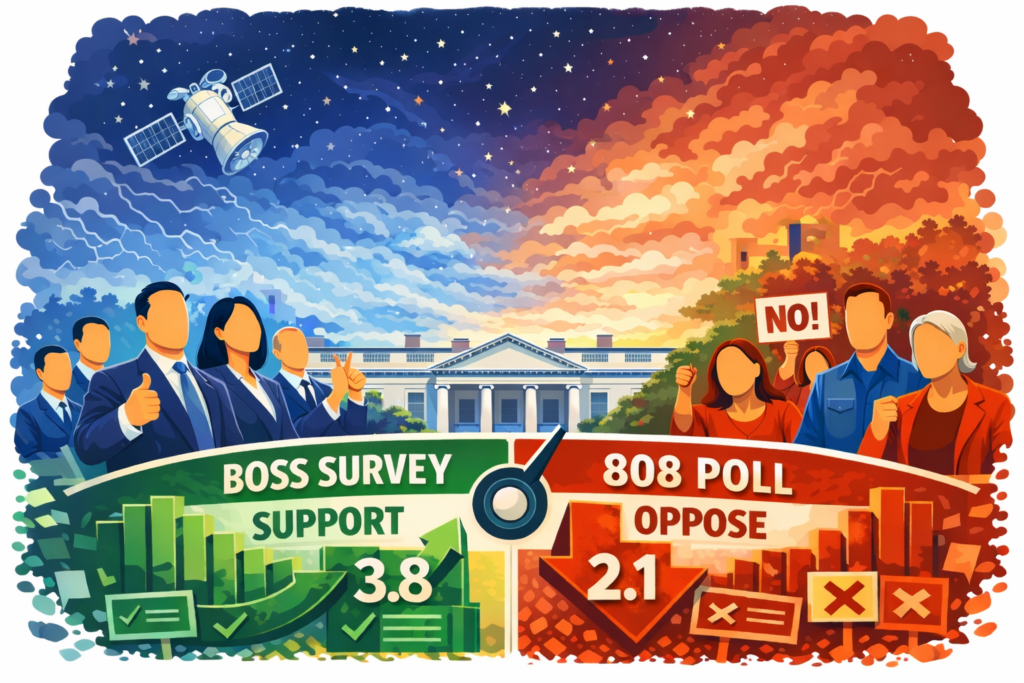Picking Through Pearls of Wisdom Offered at Hawaii Business’s Wahine Forum
You're going to fail. The question is: Will you show up the next day? Hawai‘i's top women leaders delivered unfiltered wisdom on resilience and success at the state's largest business conference.

With humor, grit, courage and grace, women panelists, speakers and attendees shared advice on how to not only survive but thrive in a business world still dominated by men.
The theme of finding community and supporting each other dominated Hawaii Business Magazine’s 2025 Wahine forum, attended by more than 1,000 people at the Hilton Hawaiian Village in Honolulu on Friday. The conference, whose presenting sponsor is the Hawai‘i Community Foundation, is the state’s largest annual event that addresses issues women face in their business careers.
Keynote speaker Nicole Lapin — a New York Times best-selling author, television news anchor, and founder of the Money News Network — joined panelists in addressing a range of topics, with recurring themes of resilience in the face of adversity and taking control rather than simply reacting.
For Lapin, the ultimate setback occurred early this year when Los Angeles fires destroyed her family’s home in the Pacific Palisades neighborhood, forcing her and her husband to flee with their 3-week-old baby.
“When your home burns, your sense of self burns with it,” Lapin said. “You’re left asking the question that every woman asks in her life, maybe not because of an actual fire but because of something else that has scorched her world: Who am I when everything is gone?”
She said the calamity forced her to reassess her relationship with money — and to confront what it can and cannot do to provide security against unexpected events — learning new lessons about insurance, for instance.
Her nuggets of advice included: “Stress-test your life the way you stress-test your balance sheet”; “You fall to the level of your preparation — preparation is peace”; “Systems are built to serve process, not people”; and “Document everything — evidence moves money, and documentation is evidence.”
Lapin also advised others who have gone through traumatic assaults on their lives to rebuild not just to make a comeback but to redesign their lives for a future shaped by the knowledge they have gained through the experience.
“When the next fire comes, study it, process it, harness it,” she says. “That’s what women do. You are the architect.”
In breakout panels, experts covered many more topics, including how to get a seat at the table where business decisions are made, how to harness AI to their advantage, and how to keep from getting overwhelmed by the demands of their jobs once they’ve landed at the top. They also shared pearls of wisdom on how to balance family demands when the job extends into evenings, weekends and holidays.
“Last week was so stressful, I thought my heart was going to jump out of my chest,” said Jen Lau, executive vice president at Finance Enterprises, in a session titled “Burnout, Boundaries and Balance: Thriving in a Demanding World.”
She said at such times she relies on her mother’s advice to take control and slow things down.
“She’d say, you want to be able to go fast enough but not so fast that a little pebble throws you off the racetrack,” adding that flexibility is also key. “You constantly need to adjust and re-evaluate – what works in one situation won’t in another.”
Lau’s advice for women trying to make an imprint: “I just want to do a good job, to kick ass for my team. There’s no substitute for hard work. You have to put in the time.”
Also important as a way to prevent burnout, added Emi Au, chief financial officer at HawaiiUSA Federal Credit Union, is setting boundaries, such as no video calls before 10 am. She says she’s often working until 1 and 2 in the morning because “my brain is on at night, that’s when I work well.”
Au added that pushback from colleagues against those boundaries sometimes “means your boundaries are working”.
When facing difficult decisions that might seem overwhelming, Au says she consults AI. The process of writing out the problem that she poses to ChatGPT, for instance, can help her find a solution.
“Sometimes articulating it is key, it helps formulate the issue,” Au says, quickly adding that once she has the AI answer, “I say okay, now I’ll go ask my dad.”
Her advice for preventing burnout draws on an analogy to machines used in manufacturing. “If you run it at 100% capacity, it will break down, but 75-80% is a good balance. You’ll have a little extra capacity so if something unexpected hits, you can adjust.”
A well-attended workshop focused on “Negotiating Strategies for Wahine Who Want More,” covering everything from advice about asking for a raise to persuading colleagues to approve a business plan or proposal.
Unyong Nakata, founder of Nakata Advisory LLC, shared solutions that focused on vocabulary, body language and attitudes, all factors that can affect the outcome of negotiations.
Playing the long game, she said, is the “ultimate return on investment,” reminding attendees to remember that “this is a small town” where social networks are intertwined and reputations formed in one company can affect how people are treated elsewhere.
In negotiations, she says, “when you hear ‘no’ or ‘not now’, keep your tone calm, curious and open” while trying to pivot a conversation toward solutions that include “we” or “us”.
“I don’t want to stab them with my words,” she said, laughing.
Women bring their own style in negotiating in a male-dominated business setting, says Sharlee Tokunaga, executive business developer at Sperber Companies.
“When you step up to the table, it’s sometimes challenging because men don’t fight nearly the same way that women do,” Tokunaga says. “I mean think of when you speak to your husband. They fight differently, right?”
The power of example, and seeing other women in leadership roles, has a compounding effect, according to many attendees.

Wendy Hensel, president of the University of Hawai‘i Ann Teranishi, president and CEO of American Savings Bank Photo: Aaron Yoshino
Wendy Hensel, president of the University of Hawaii, and Ann Teranishi, president and CEO of American Savings Bank, both said they never imagined earlier in their career that they would be in the roles they now serve.
Indeed, taking risks and stepping outside of comfortable or expected paths can lead to rewarding careers.
Hensel recalled that after seeing a teaching job become available at Georgia State University College of Law, she stepped away from a career track at a law firm, deciding that teaching was something she’d wanted to try.
“In taking that chance….it was the best moment in my life,” she recalls. “I found my passion — my passion for my students and the ability to reach someone right in front of you but also literally generations of people who are affected by what you do in our classrooms.”
Hensel recalled her interest in academia stemmed from seeing a female provost and thinking, “I could do that.”
“The power of seeing someone who looks like you and is recognizable in a position you want to be in should never be overstated. It is really very powerful. I started thinking I want to be an administrator, and later I became the dean of a law school, and was elevated to provost.”
For younger women who might see in her the role-model they’d like to emulate, Hensel cautioned that “it was not all sunshine and roses,” but she reached the moment when life exceeded her expectations through “grit and resolve and resilience.”
Teranishi, who was selected Hawaii Business 2025 CEO of the Year, was asked what advice she would have given her younger self: “I would say trust in yourself. … Take a little more risk…Don’t look so much backward, look forward…Have faith in the journey and the process.”
Other nuggets of advice gleaned from a range of conference attendees:
- Build a community of trusted friends and business colleagues who can be a sounding board for ideas and career advice.
- Be alert to signs that you’ve taken on too much and are risking a negative stress cycle
- You must be present and commit to doing the hard work needed for success.
- Be mindful to nurture the next generation of female leaders and help them gain skills and articulate the vision for them to succeed.
- Hawaii values culture, respect and community. Those aren’t soft skills needed to succeed; those are hard skills.
- You’re going to fail. Whether you ultimately succeed depends on showing up the next day and proving you’re not going to give up.
- Always remember that the ones who are most important are those who are waiting for you at home.
For other resources suggested by keynote speaker Lapin and others, click on Resources – Hawaii Business Magazine.









